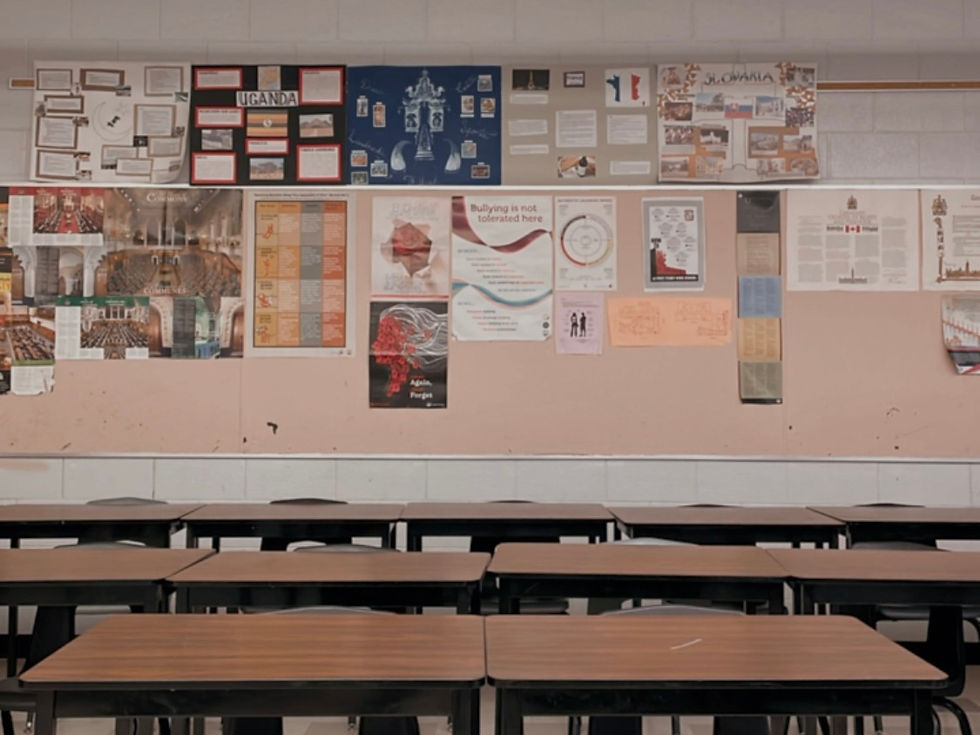Fear and Learning
- L.T.

- Jul 29, 2022
- 3 min read
Updated: Feb 23, 2023
Over the course of my B.Ed, I completed countless of placements in various classroom settings across Ontario. I was fortunate to have incredible associate teachers who invited me into their classrooms and allowed me to teach and learn alongside them. However, one thing that just so happened to be in common with all of my placements, was that none of my AT's were BIPOC educators. Decolonizing our school systems and classroom practices continues to be a challenge that every educator experiences. The AT's that I had were still in the very beginning stages of learning how to naturally incorporate culturally diverse teaching into their everyday practice. And I say this not because they were not trying but because I think that so many of us have not even begun to scratch the surface when it comes to breaking down systematic barriers in education.
I mentioned this in my responses for the course readings this week, but Dr. Theodore Christou's research has always been one of my favourites to delve into and explore. For this blog post, I read his and Judy Wearing’s research on “Curriculum Conversation on Fear and Learning”. The article compares and contrasts the opposing views of both Christou and Wearing. Christou argues that learning is inherently fearful and meant to be feared. It means diving head first into the unfamiliar and venturing into the unknown (Christou, 2015). Wearing on the other hand, argues that fear is not inherent in learning; because from an evolutionary perspective, the idea of fear as inherent in learning, is contrary to principles of natural selection. “Consequently, the suggestion that fear is inherent in learning is equivalent to claiming that fear is inherent in eating … Avoidance of learning, as avoidance of eating, is a trait that is not sustainable.” (Wearing, 2015).
Reading this article reminded me of an experience I had back in teachers’ college, where one AT I knew struggled with how to approach the land acknowledgement. Their opinion was to recite the same script each day, at the start of every class, and they had me do the same. When I returned to their classroom for a second placement, I suggested that by doing this, it diminishes the meaning of the land acknowledgement. If we are going to respectfully acknowledge the land that we are on, we should pull away from the idea of a scripted acknowledgement, and try to make a more personal connection to the land. This is a practice that we are encouraging more in public theatre spaces, so why not introduce it to the classroom? I recognize that this is a highly controversial topic, and my AT and I spent countless hours trying to find a respectful compromise.
In many ways, my AT argued the points that Christou brought up in the article, and I was arguing Wearing’s points, that avoidance of learning is just not sustainable. My AT recognized that they were born into a position of privilege, but often let fear get in the way from approaching any of the learning material. Fear drives us but we cannot let it overcome us. Our students look to us to deliver the lesson material and create these culturally diverse spaces.
“Curriculum is enabled by diversity. It is because of our differences, rather than despite them, that we have learned about ourselves and about the potential for conversation to curate curriculum inquiry.” (Christou & Wearing, 2015).
References
Christou, T. M., & Wearing, J. (2015). An Interdisciplinary Curriculum Conversation on Fear and Learning. In Education, 21 (1), 42–58. https://doi.org/10.37119/ojs2015.v21i1.203

Uxbridge, June 2022







Hi there!
I found those conflicting ideas on fear and learning very interesting. I never thought fear should go hand in hand with learning because school is supposed to be a safe place. I didn't have the greatest social interactions with peers as a kid, so I know it isn't always a safe place and there can be fear in learning such as the fear of answering a question wrong. I think a compromise between these ideas is in order. We know that we learn from scary experiences from an evolutionary point of view (e.g. if a child touches a hot pot, they will learn not to do it again because they'll fear the pain) but that is not how…